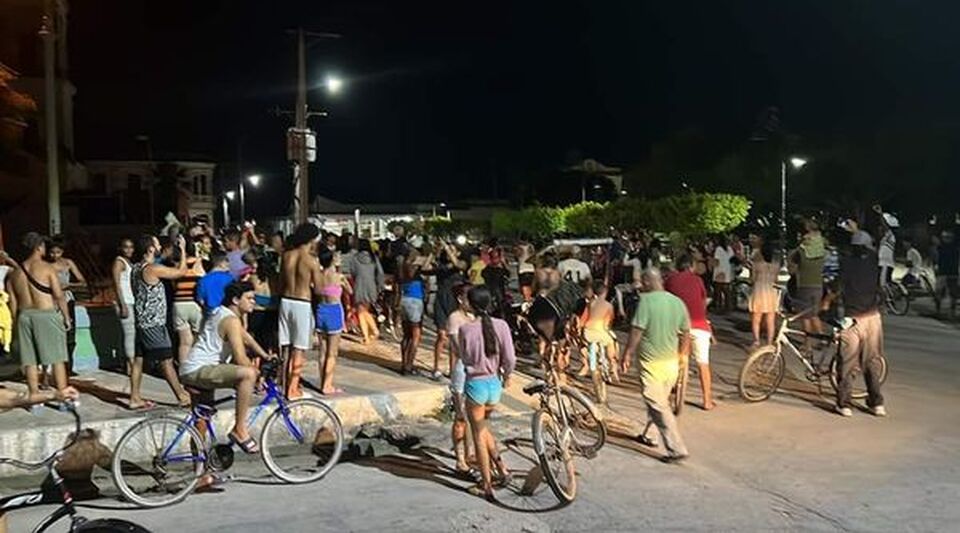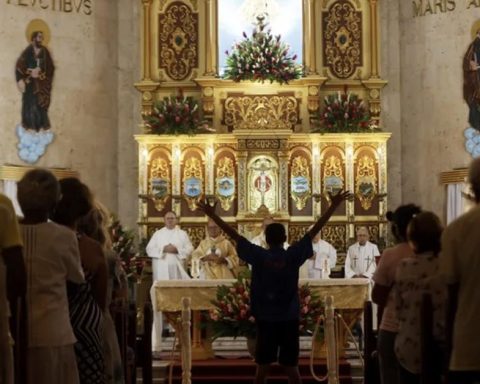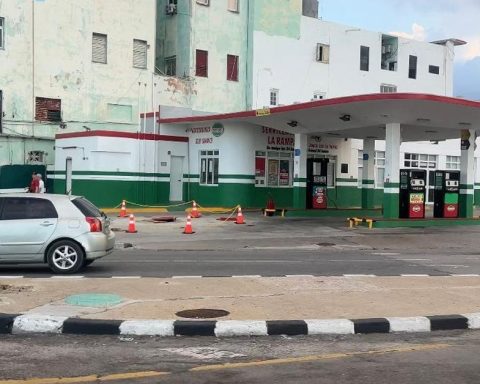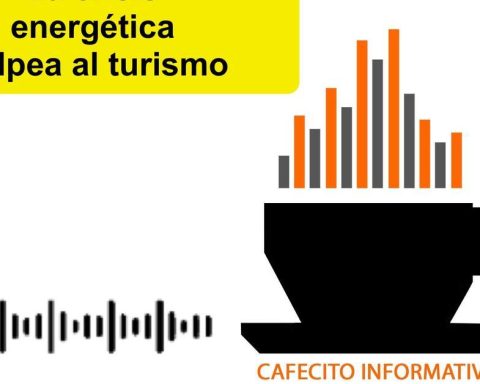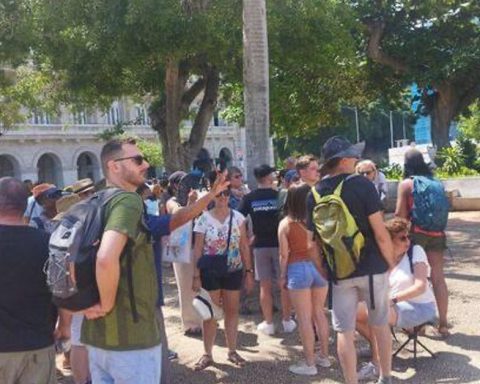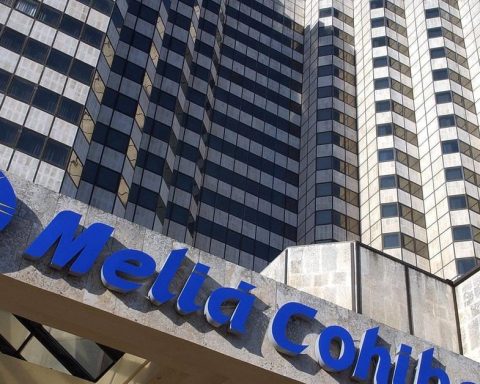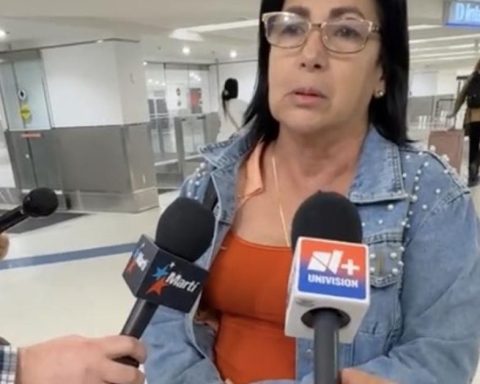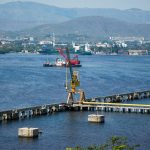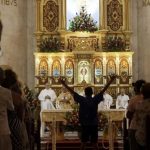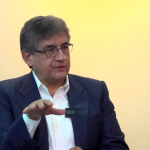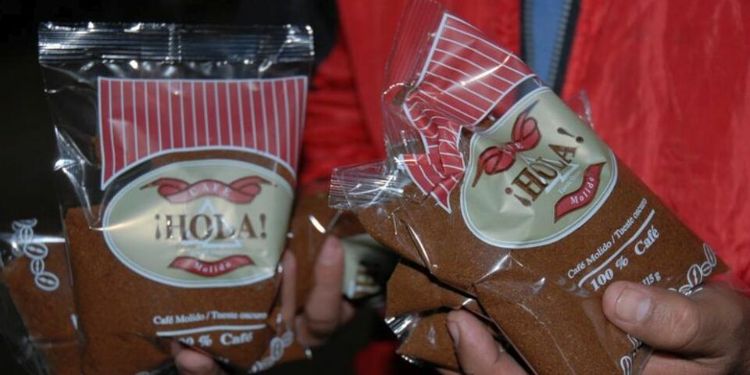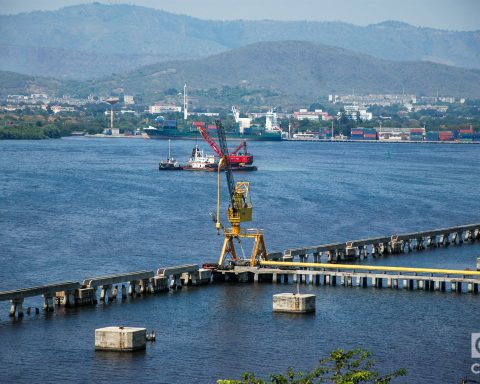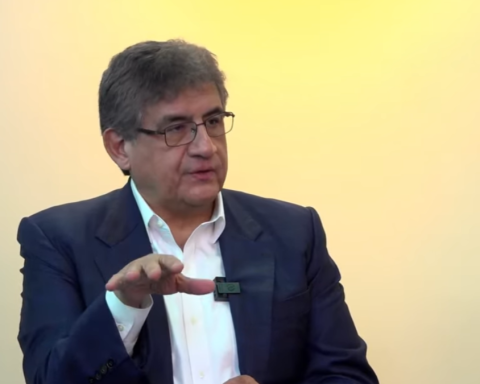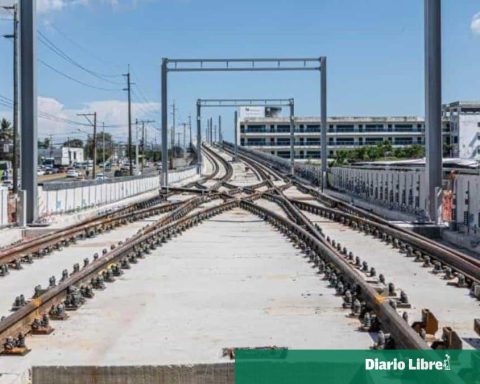The deputy attorney general of the Republic, Marcos Caraballo de la Rosa, came to the television program We Make Cuba this Monday to remember that the protests that have taken place on the island in recent weeks in response to the prolonged power outages are being investigated.
The intervention did not contain any news regarding what the body already reported last Friday, October 14except that their networks disclosed, along with the videos of the broadcast, a brief tweet for a great threat: “The Penal Code provides life imprisonment or temporary deprivation up to 30 years.”
The text indicates that the Prosecutor’s Office plans to act as forcefully as possible against any attempt at revolt, as it did after the protests on July 11, and that was the purpose of Caraballo de la Rosa’s television intervention, dedicated to reinforcing the message and convincing citizens that a simple traffic blockage on a highway can lead to a high prison sentence.
Caraballo de la Rosa’s television intervention was dedicated to reinforcing the message and convincing citizens that a simple traffic blockage on a highway can lead to a high prison sentence
The Prosecutor’s Office recalled that the alleged crimes being investigated are the “arson of facilities, the execution of acts of vandalism, the closure of public roads in order to prevent the movement of vehicles and people, aggressions and offenses against officials and law enforcement , and incitement to violence”.
For this, he explained, the videos broadcast through social networks are being used as evidence, supposedly expert to guarantee their validity. Through them, said the prosecutor, you can “reliably demonstrate the identity of a person.” Caraballo dedicated a long dissertation to the validity and use of these images, presumably with the aim of dissuading those who record from doing so.
This would have a double consequence: prevent the spread of information regarding discontent on the Island and the multiplication of protests in different parts of the country due to the contagion effect and the perception of the protesters that they are not alone.
Along with the videos, the prosecutor pointed out, witnesses and possible participants in the events are questioned, which the official believes alter the state of peace on the island. “Citizen security is appreciated in Cuba as a mega-right, because it is the right of the people to enjoy order and tranquility,” he argued. On the opposite side, he continued, there is “anarchy, indiscipline, violence, which we can see in the images available on social networks.”
Another of the great spotlights is on, as previously noted, in the participation of minors in the protests. Many of them took to the streets of their own free will, in the case of the older ones, but also others, the younger ones, did so because they were in the care of their parents, who wanted to complain about their situation.
“It is not admissible that our minors be placed in situations or states of danger,” said the prosecutor. In his opinion, investigating the “parents who involved” their children in possible crimes makes sense because of the “principle that has historically characterized the essence of the Cuban Revolution and our socialist rule of law, which is humanism.”
He argued that in Cuba the right to demonstrate is guaranteed, but it should not be confused with “claiming violently, with offenses, in a group, with aggression, [y] property damage”
Along these lines, Caraballo also made a supporting statement and argued that in Cuba the right to demonstrate is guaranteed, but it should not be confused with “the claim in a violent manner, with offenses, in a group, with aggressions, [y] damage to property”, in addition to the aforementioned fact that minors attended.
The official argued that no one has the right to claim affecting the rights of others and gave as an example the closure of roads that causes inconvenience, in his opinion, to those who want to go to work, school or go out for leisure. The election was not the most fortunate since at night it is not so frequent to alter work and school obligations, but the prosecutor also forgot that one of the fundamental characteristics of constitutionally permitted demonstrations is to pressure and, at the same time, turn, draw attention to the problem that is reported, which implies altering normality.
Caraballo, however, wanted to compare Cuba with other countries and warned that “all the states of the world defend themselves when they receive attacks on their institutions, their bodies and the fulfillment of their goals” and that, in such a situation, the Prosecutor’s Office can “turn face”.
Many of the protesters who took to the streets these weeks did so to demand political change, but a large majority demanded something as simple as having electricity in their house or not having it cut off every two or three hours. Despite this, some thirty citizens have been arrested, according to various NGOs, and some of them could end up in prison.
________________________
Collaborate with our work:
The team of 14ymedio is committed to doing serious journalism that reflects the reality of deep Cuba. Thank you for joining us on this long road. We invite you to continue supporting us, but this time becoming a member of our journal. Together we can continue transforming journalism in Cuba.
